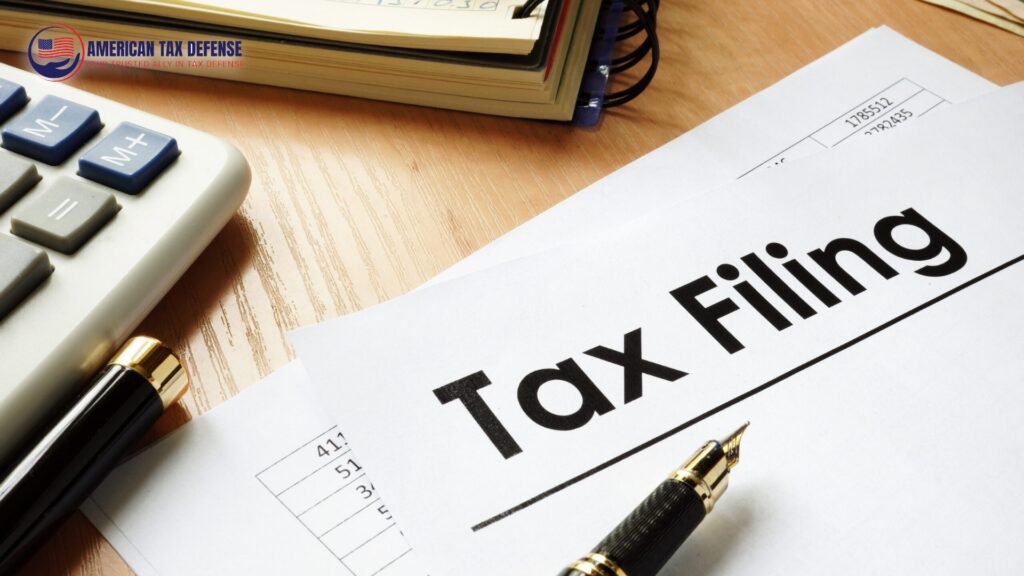In the United States, tax season can be rather taxing, and many people find great stress and uncertainty around the concept of timely tax filing. But life can get in the way; unplanned events can happen, documentation might be delayed, or you could need additional time to prepare your return carefully. Under such conditions, the Internal Revenue Service (IRS) allows individuals to request a delay in turning in their tax returns. What does this imply, and When do you file a tax return in the USA with an extension?
Let’s simplify it for you.
Describes a tax extension
An official request to postpone the date for submitting your tax return is a tax extension. An extension to file is, quite obviously, not an extension to pay. You must still pay any taxes owing by the original due date; otherwise, you incur fines and interest.
When do you file a tax return in the USA with an extension? The IRS usually grants six more months to handle the filings. Thus, instead of the customary April 15 date, you would have until October 15 to turn in your return.
Still, the extension has to be sought before the original filing date passes.
Important Dates to Not Forget
Weekends or holidays might cause minor variations in the deadlines for paying taxes in the United States; still, below is a broad concept of the key dates you should be familiar with:
- The expected deadline date for individual tax returns is April 15.
- October 15: If you seek an extension, this is the revised due date for sending in your tax return.
If the due date falls on a weekend or a holiday, the filing deadline is typically the next working day.
When do you file a tax return in the USA with an extension? Reasons
You could want to give filing for an extension some thought for several different purposes.
More time to gather papers: Sometimes, your tax records, such as W-2s, 1099s, or receipts for deductions, are delayed. File an extension if you lack all the documents you need to file your taxes properly to give yourself the time to prevent issues.
Avoid the failure-to-file penalty: File for an extension to avoid the failure-to-file penalty if you cannot meet the April 15 deadline. For every month the return is late, the late filing penalty could be as much as five percent of your unpaid taxes. If you submit an extension, you are merely postponing your papers—you are not late.
Prepare your taxes carefully: it might be tense if you worry about missing something. If you feel unprepared to file on time, asking for an extension allows you to unwind, check your records, and ensure everything is accurate before sending your return. You can also speak with a tax advisor for additional guidance.
To collect money: Sometimes, people require more time to collect the money to pay their taxes. This causes the inability to pay taxes on time. Filing for an extension helps avoid the need to pay your taxes in haste. An extension does not, however, stretch the period to pay. Should you owe taxes, you should project the total owing and make that payment before the April 15 original due date.
File for an Extension: How to Do It
File for an extension; it’s easy. The IRS has several channels of request for it:
- Form 4868: If you want an automatic six-month extension, complete the IRS 4868. You can mail or electronically complete this form using the IRS e-file system.
- The IRS enables individuals to e-file Form 4868 for free using its website or a tax software package.
- Should you choose paper, print Form 4868 and send it to the IRS by April 15, the deadline date.
- Most tax preparation services, including TurboTax, H&R Block, etc.—have a tool letting one apply for an extension. This is a quick and easy method since you now use the application for your tax return.
- If you owe taxes, you can pay them while looking for an extension using IRS Direct Pay or Electronic Funds Withdrawal.
- Though it’s unnecessary, it can help lower interest and penalties. IRS Direct Pay lets you pay online; you can arrange a payment for the due date to prevent late penalties.
- You will receive confirmation after your extension is approved, and October 15 will automatically be your new tax filing deadline. If you do not receive confirmation within a few weeks, it is a good idea to review your extension status.
When should you submit an extension?
When do you file a tax return in the USA with an extension? Once you have all the necessary papers and information, filing your tax return is always best. Still, there are several situations when asking for an extension would be the right decision:
- Requesting an extension may help you avoid rushing to submit without all the required documentation if you lack crucial tax records (such as a W-2 or 1099) or are awaiting a correction.
- If you find yourself overwhelmed by tax forms and regulations or inexperienced with deductions and credits, it’s alright to take the extra time to guarantee that you file correctly. Filing an extension gives you extra time to investigate or speak with a tax advisor.
- Suppose your tax situation is more complex than usual. In that case, if you run a business, have several sources of income, or handle investments, it may take relatively more time to record all your income and deductions. An extension offers the extra time required to prevent errors.
- Events in your life, such as marriage, childbirth, or relocation, can complicate your taxes. Filing an extension allows you to arrange the appropriate documentation and have breathing room to adjust to these changes.
- Financial Restraints: File an extension if you owe money to the IRS and require additional time to collect it. Remember that you should still pay as much as possible before the original date, April 15, to reduce any penalties or interest costs.
Crucially Important Things to Remember
1. You still need to pay by April 15. Whether or not you owe money, an extension does not affect the payment date. Even with an extension to file, you must estimate and pay any taxes owing by the original due date to avoid penalties and interest.
2. File for an extension, and it is automatically granted. You are not obliged to provide further material or a rationale.
3. Although the IRS gives a six-month extension, attempt to file your taxes as early as possible to avoid last-minute problems.
4. Remember that a delay for your state tax return does not usually follow from an IRS extension. See whether your state’s tax officials indicate you need a separate extension.
Key Takeaways
When do you file a tax return in the USA with an extension? For individuals with extra time to file, filing taxes with an extension is a valuable approach; it is not a justification for postponing payment. To prevent penalties, you should still make every effort to pay any outstanding taxes by the original deadline. Requesting an extension will help you avoid rushing and making mistakes if you find tax season taxing or if your documentation is delayed. A little more time will help you to confidently and precisely file your taxes.
If you’re unsure about the procedure or need assistance, consider contacting a tax attorney to guarantee you complete your return accurately. File for an extension with the proper preparation, and tax season may be somewhat less taxing!
Why Choose American Tax Defense?
American Tax Defense is a specialized service designed to assist people and companies in negotiating complex tax problems and IRS conflict resolution. This service offers expert representation for taxpayers confronting audits, liens, levies, wage garnishments, or other enforcement activities. Working on behalf of clients, American Tax Defense firms frequently hire seasoned tax attorneys, accountants, and enrolled agents to negotiate settlements, present payment plans, or seek penalty reductions. Their objective is to provide strategic counsel and advocacy to shield taxpayers from too harsh fines or legal repercussions. Seeking counsel from a reputable American Tax Defense firm can help you understand your options and pursue a favorable settlement if you have trouble with back taxes or require aid with tax-related difficulties.







